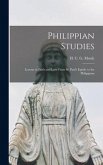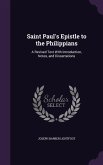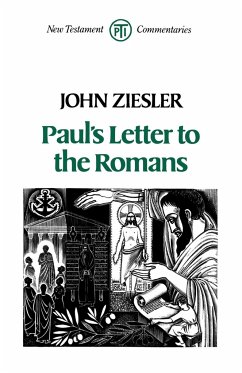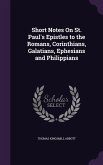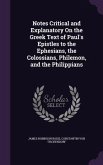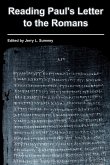Interprets Paul's letter in light of its rhetorical content and cultural context Skeptical of the trend among many biblical scholars to analyze Paul's short, affectionate letter to the Philippians in light of Greco-Roman letter-writing conventions, Ben Witherington instead looks at Philippians as a masterful piece of long-distance oratory -- an extension of Paul's oral speech, dictated to a scribe and meant to be read aloud to its recipients. Witherington examines Philippians in light of Greco-Roman rhetorical conventions, identifying Paul's purpose, highlighting his main points and his persuasive strategies, and considering how his original audience would have heard and received Paul's message.
Bitte wählen Sie Ihr Anliegen aus.
Rechnungen
Retourenschein anfordern
Bestellstatus
Storno


